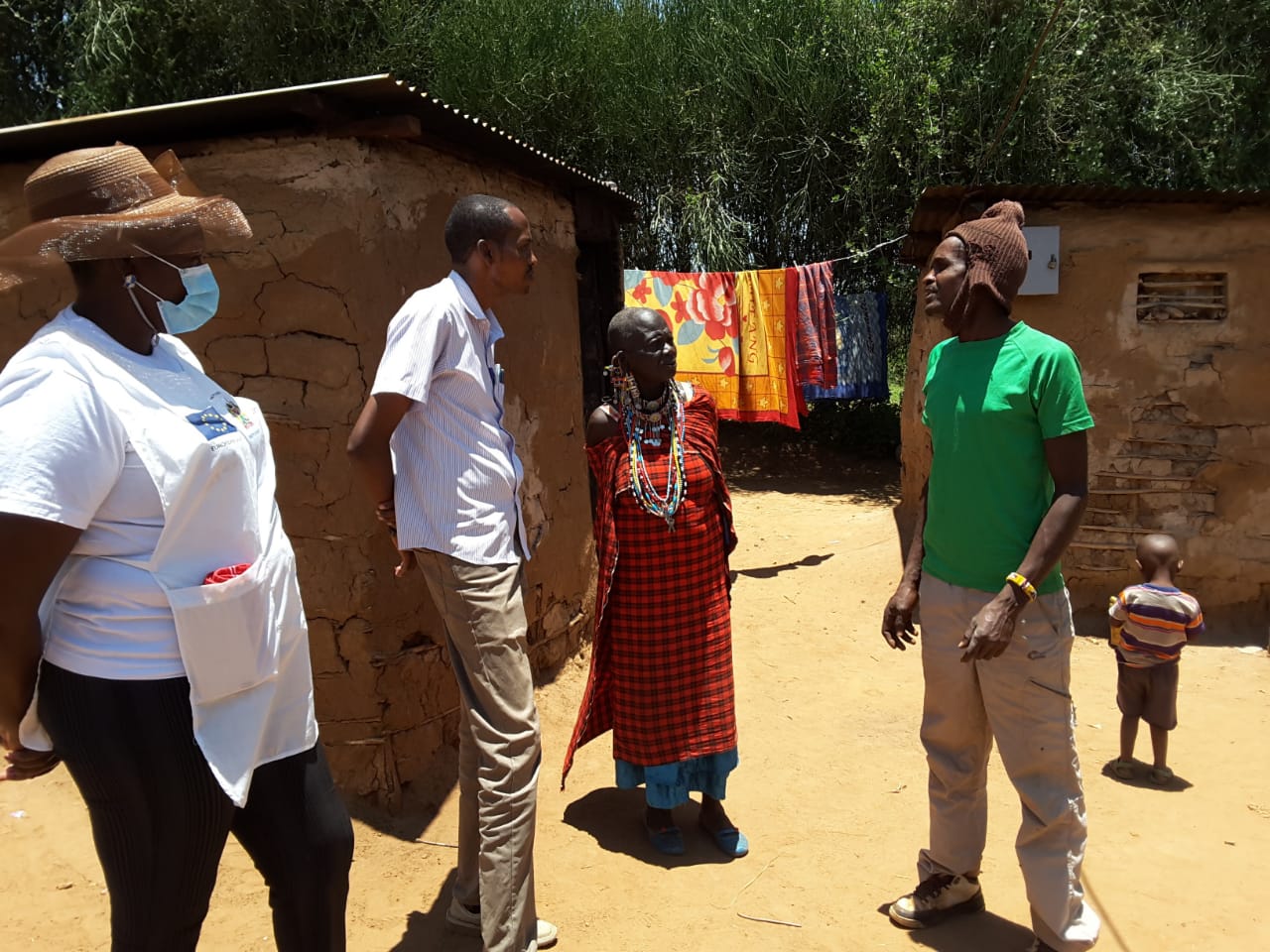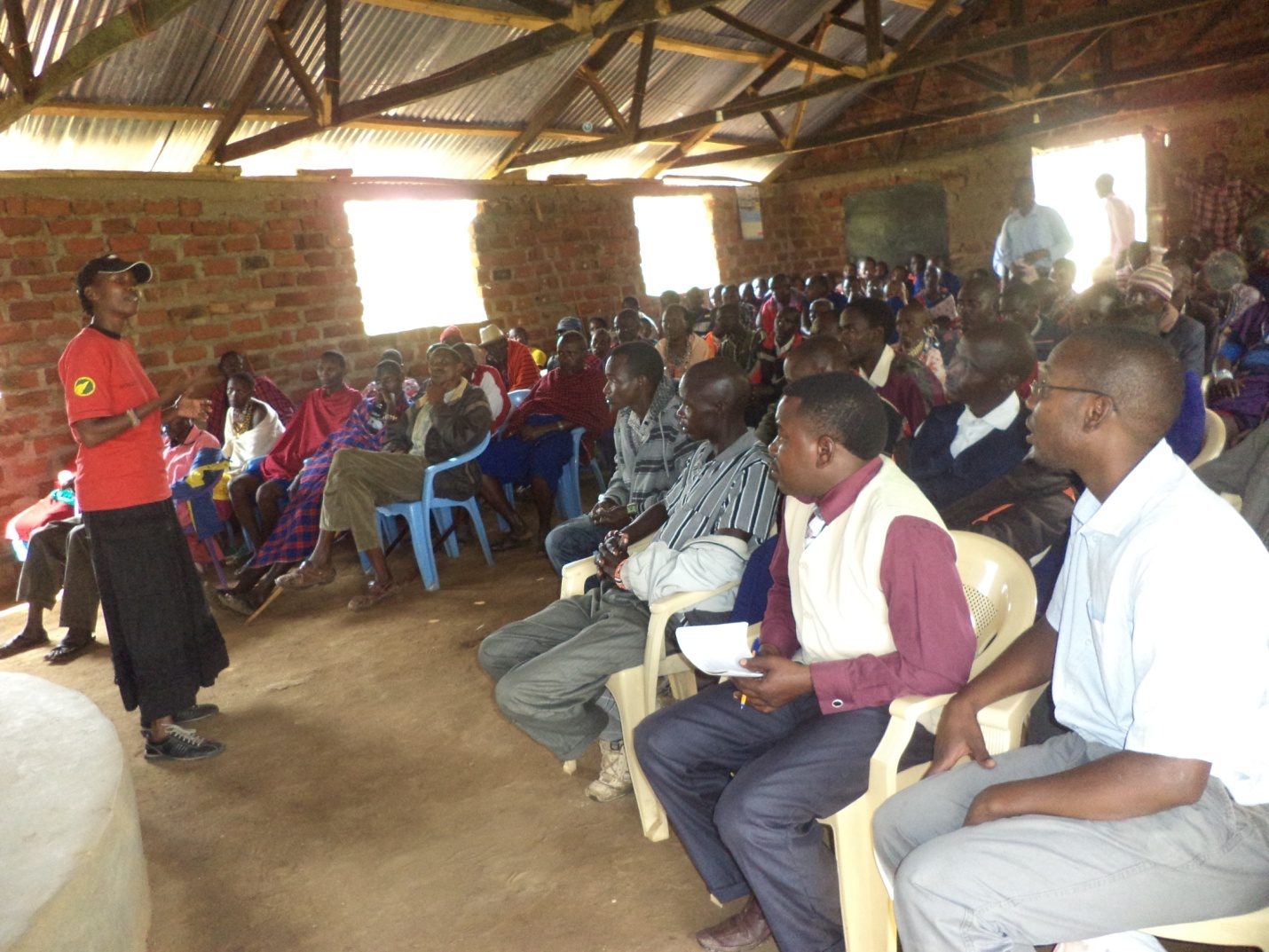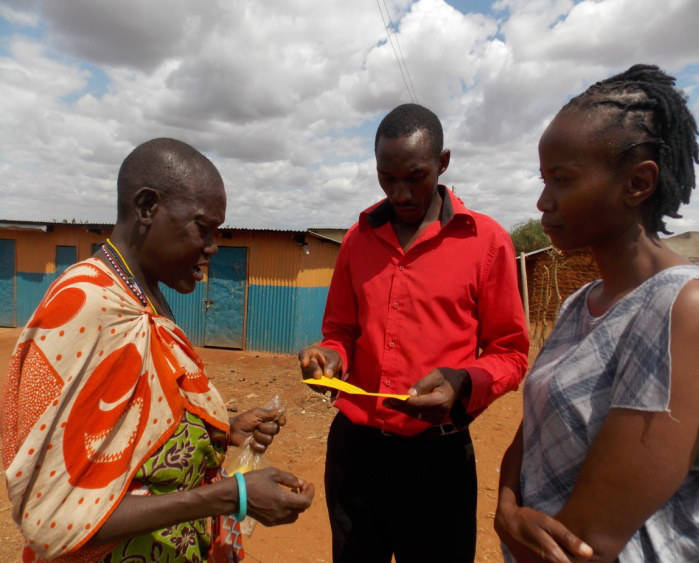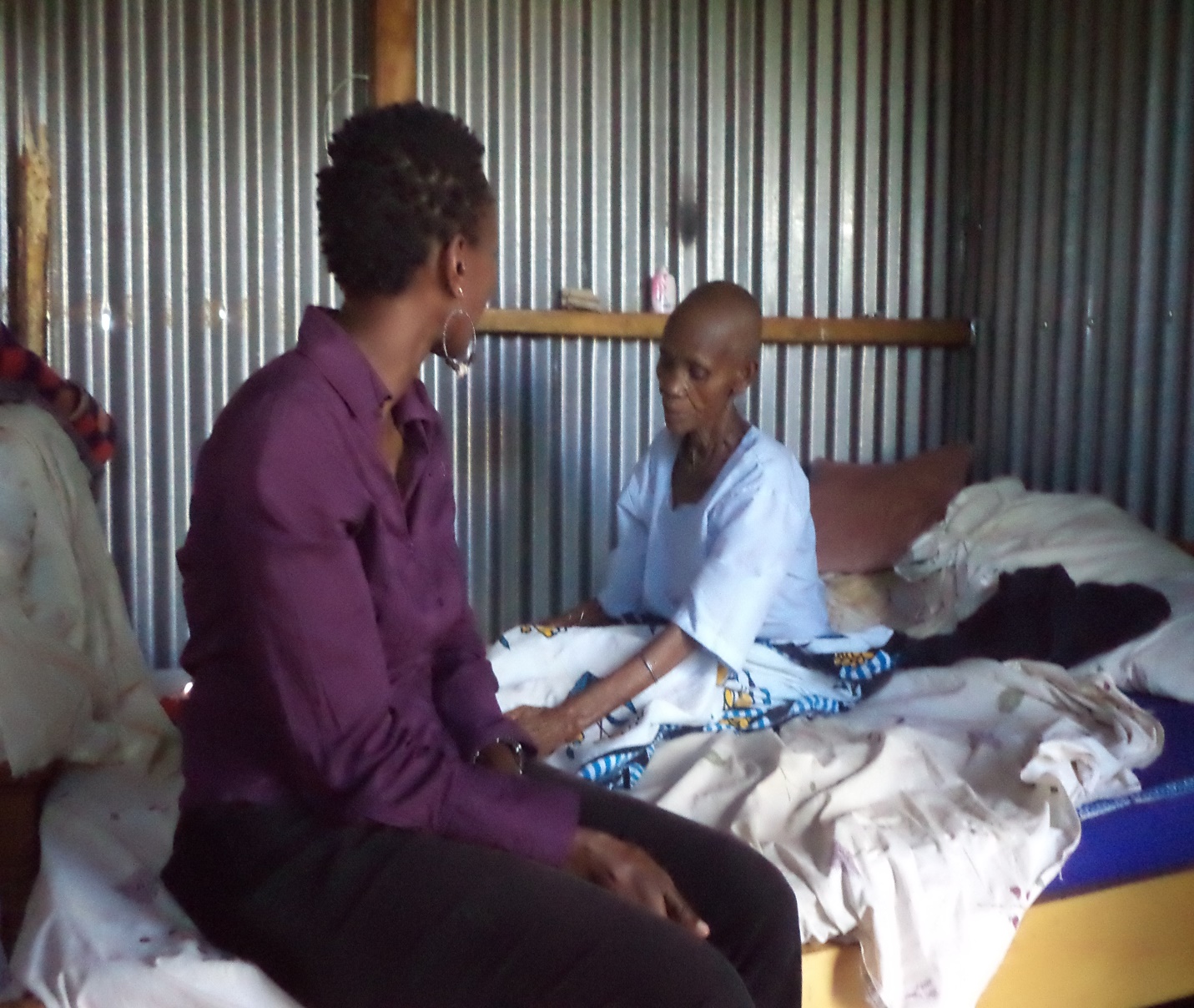Talaku TB 2021
Tuberculosis is the leading infectious disease killer in Kenya in reference to prevalence survey report.
A 2015-2016 prevalence survey revealed a burden of 426 TB case per 100,000 populations
twice the burden of previous estimations.
TALAKU TB is working very closely with Kajiado Department of medical service & public health
and Amref Health Africa through Global Fund in implementing 2019-2023 National Strategic Plan for Tuberculosis, leprosy and lung health. We ensure communities are educated with knowledge on the sign and symptoms of tuberculosis to enable early diagnosis, screening of household with a bacteriological confirm patient to stop the spread of the disease to the family members and the
community as a whole and we all can’t achieve this without the help of the Community Health Volunteers.
At the community level TALAKU has a good relationship the local administration i.e. the chiefs
who have assisted us in bringing back the stubborn treatment interrupters to treatment.
We received amazing support with the adopt family initiative, which has seen patients on treatment adhere to treatment without interrupting.
Tuberculosis is a disease that is curable and preventable. We can only Mulika TB and Maliza TB Popote Pale when we work together as a team.
The Maasai house known to many as, ‘Manyatta’ is an iconic figure in Kenya and an expression of Maasai tradition. The Loaf-shaped domed houses are unique in their construction and a cause of fascination because they are built by the Maasai women. These houses seem to blend very well into the harsh environment. They are built to keep out the harsh night-time cold and the day time heat. They have no windows and herein lies the problem. These houses are death traps for any air-borne disease like TB.
When a TB infected individual shares the poorly ventilated and dimly lit house the danger of spreading TB is very high. Every cough, sneeze or laugh sees TB causing germs circulate within the house putting everyone in danger of infection. This is where Talaku Community Based Organization, supported by BMSF and its indefatigable coordinator Ms. Timpiyian Leseni are making an impact; they are challenging the traditional way of building and remodeling the Maasai landscape with modern ‘slope’ houses while fighting TB. Timpiyian has a passion to prevent TB since she is herself a TB survivor. She suffered from TB of the stomach that she suspects she might have got from either poorly prepared meat, milk or blood which are the staples among the pastoralist community. After she recovered she embarked on a mission to educate the community about the risk of TB. Among her crusades is defaulter tracing and she traverses her Kajiado County home tracing defaulters and linking them back to care at the facilities. Recently she traced a woman who she had initially brought to the hospital for Treatment only for her to sneak off again. Third time around and Talaku traced her where she lives and found that there were other four individuals who were infected with TB. They managed to link them on treatment and the serial defaulting woman was now taking treatment while confined at the Machakos prisons because Kajiado lacks a female ward where she would be treated as an in-patient.
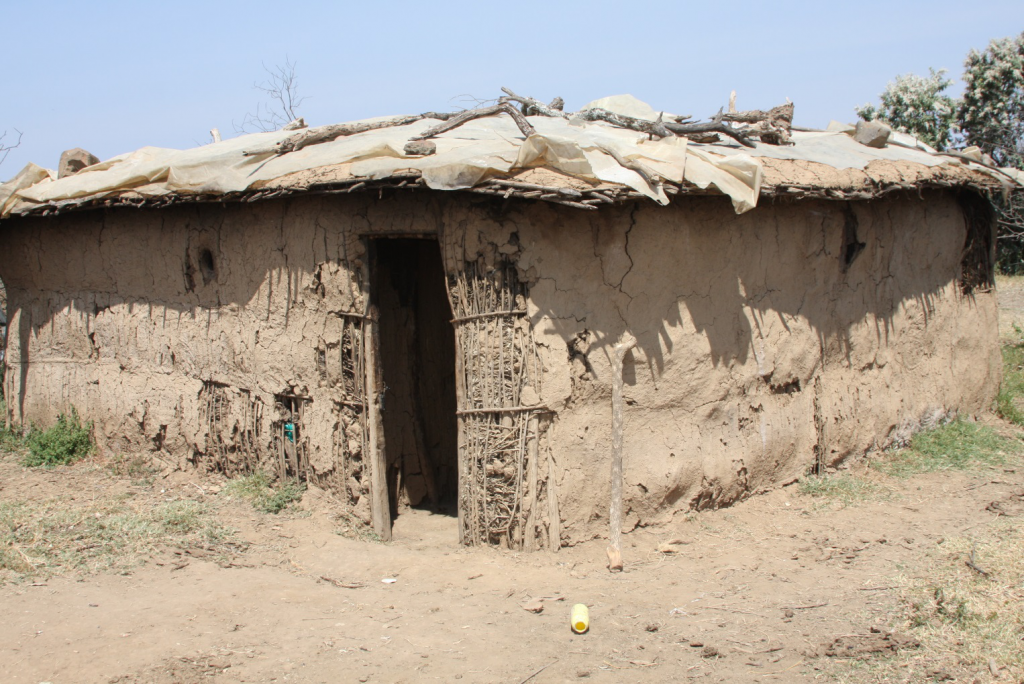
However, prevention is better than cure and Talaku is determined to educate the Maasai so that they can re-model their houses and make them less TB risky. Talaku Community TB intervention seeks to introduce windows to the Maasai Manyatta. The windows will not only improve ventilation and let in light it will also make the houses safer because when cooking is done in the house using firewood the smoke increases the risk of respiratory tract infections and stings the eyes. In neighboring Narok County the remodeling of the houses have gone even a step higher with the incorporation of corrugated iron ‘slope’ roofs that make it possible for the women to harvest rain water for domestic use.
So apart from tracing defaulters and re-linking them to the health facility so that they can complete their TB treatment regimen Timpiyian is changing the skyline of the Maasai plains – all in the name of preventing TB.
I get up at dawn… at times as early as 4 a.m. I prepare breakfast, after which I wash dishes. I like leaving all the dishes clean. It’s one of my responsibilities, to help mum with the household duties.
I live with my parents here, in olmeirroe it’s about 8km away from Kajiado town. It takes me close to 2 hours or so to walk from home to Kajiado town.
If I am to trace a defaulter or when am going out to trace a defaulter, I start off from home as early as 7am in the morning. Our people walk a lot and so do i. I know several short cuts. Some sections are full of thorns and long grass so I weave my way carefully.
Because of the great distances covered in our region through walking, many people ask for lifts, at times with success, at time without. At time I may come across a friend driving toward the direction I am going there I get a lift. Maili tisa matutas are picked at the matatus terminus within Kajiado town. These matatus take too long to fill up. Before it takes off, I use this time to engage or talk to the matatu operators about TB. I tell them the risk of skipping medication if one is infected and put on treatment. I encourage them to be tested and assure them that TB is curable. I’ve printed stickers that say the person sitting next to you might be having TB open your window that I ask to be put in the matatus. These matatus may take long as 30 mins or one hour to be filled. Most of them are 7 seaters but the seats for 3s end up with 4 people. There could be as many as 10 people inside this vehicle with the driver, 11. While travelling I keep in touch with my friends or even persons to help me get in touch with those I’m trying to trace. After I alight I get in touch with a family member or somebody who knows whoever I’m looking for.

A time I just go from here to there asking around. In most cases, I find kind-hearted people willing to help. One of the defaulters, john whom I had traced successfully almost 3 months ago has a cousin here in maili tisa. I simply call him Baba Jose. He knows quite a number of the persons on my list; I mean the families to one of such homes. The home of the one I am tracing is in the interior hence I am to take a boda boda. Baba Jose has one but he didn’t have it than. I was force to negotiate for a boda boda ride. These motorbikes are more expensive than matatus. I bargain a lot or it is argue? These boda bodas as they are called here may not provide helmet. At times they are ridden very fast. The wind makes tears stream down my cheeks the chap I am wearing helps with the wind. A ride on tarmac road is smooth though on a rough road, it is very rough as the road.
Boda bodas are convenient because getting to the interior of place may not be hard. Besides they don’t have to be filled like matatus. They can carry one person and that’s it. At time I find deserted homes. The defaulter I’m looking may not have a phone. This means I have to look for him another day I don’t give up since I know he’s a ricks to the community.
I am now boarding a matatu that is going to namanga from maili tisa. I have an appointment with Sophie, the nurse in charge of TB treatment at the namanga health center. This matatu may also take a while to fill up, or the driver may just decide to go that way, with some empty seats. At the health center patients may be very many; Sophie could be busy attending to them. I have to alert her that I’ve just arrived. So I have to wait for her. She informs me that john has defaulted gain. Here we are force to take drastic measure.
Sophie takes me to the ministry of public health in namanga. The public health officer links me up with the police .One police officer accompanies me to maili tisa to look for a john the defaulter who has skipped medicine the second time. John had been put on retreatment in August after I successfully traced him. He’s defaulted again, in September. Out of concern for him I have to look for him again his condition may grow worse. John is found at one of his drinking den right here in maili tisa.
He accompanies the police offer and I to a tax, we could not use a matatu because of his condition. We had to wear mask for the sack of our own protection. We head straight to the TB manyatta wards, where I hand him over to the heath officer here. The nurse gave john bottles which are used to collect sputum mostly in the morning before one has breakfast. The District Medical Officer of health, Dr. Ngere decides that this is a police case. He’s handed over to the police. It really hurts me. I didn’t think it would turn out this way. But I’m just trying to help. If he had kept to his medicine, it wouldn’t have reached this far. But what do I do? At the Kajiado police station, he’s to be locked up. But he might infect others since there is only one cell here. They do not have an isolation cell.
Shorty I learn that he’ll be remanded at the nearby prison and will be treated as an inmate. This hurts me further. The following day, he’s charged at the principal magistrate’s court in Kajiado. He’s in isolation due to his condition. In fact the court process is held outdoors. He is charged with an offence of willing spreading the diseases, he will be in prison for three month but can’t leave prison until a go ahead is given by the district medical officer of health that is his free from TB and that he’s not a threat to the public.
I made him understand if only he didn’t stop his medication this will not have happen to him. John gave me two bottles with sputum which I drop at the TB manyatta. Agnes the nurse at the TB manyatta made me understand that he’s to receive 56 injections even though he’s in the prison now. I know this will help.
I’m determined to continue visiting him to find out how he’s progressing. I wish he doesn’t skip his medicine again. I pity John.


